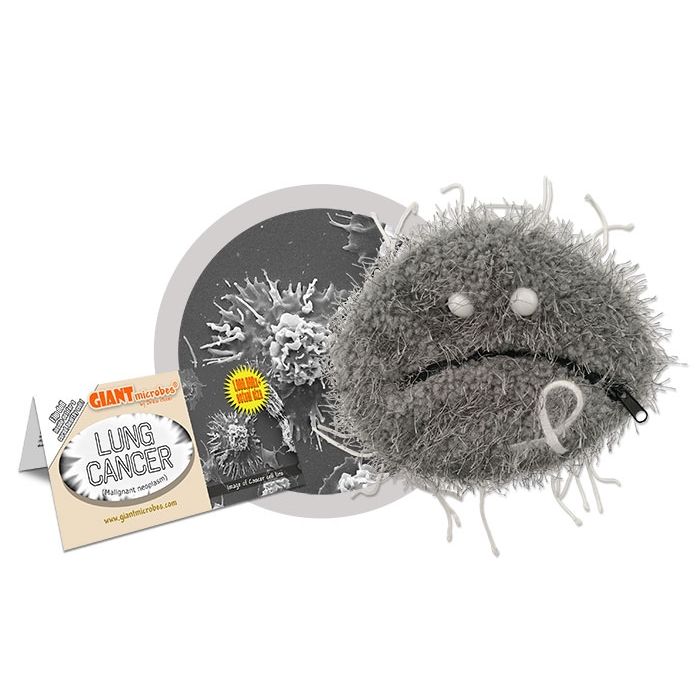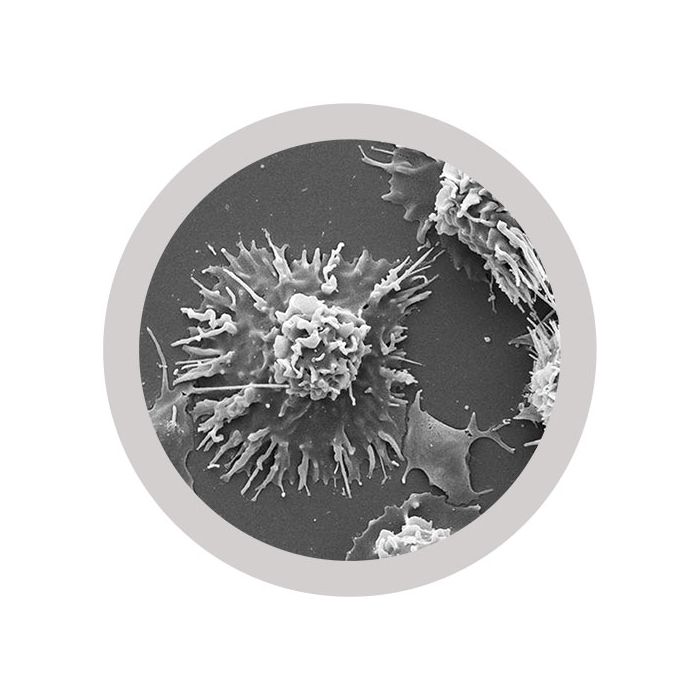Lung Cancer (Malignant neoplasm)
Our Cancer cell can be "cured" by flipping it inside-out!
Product Details
Additional Information
| Sizes | Giantmicrobes are based on actual microbes, cells, organisms and other critters, only 1,000,000 times actual size! Gigantic (GG) 16-24" XL (XL) 10-15" Original (PD) 5-8" Keychain (KC) 2-4" with clip |
|---|---|
| Materials | Plush from all new materials. Stuffed with polyester fiber fill. Surface washable: sponge with water & soap, air dry. |
| Packaging | Each plush microbe includes a printed card with fun, educational and fascinating facts about the actual microbe or cell. |
| Safety | Every product meets or exceeds U.S. and European standards for safety. For ages 3 and up. |
All about Lung Cancer (Malignant neoplasm)
FACTS: The term cancer applies to more than 100 different diseases, all of which have two things in common. As a result of genetic damage, normal cells become cancerous and can grow in an uncontrolled manner. In addition, these cells are able to invade other tissues, disrupting and destroying the structures and organs that they infiltrate.
As with most cancers, lung cancer develops due to genetics as well as risk factors including poor diet, smoking, excessive alcohol consumption and lack of exercise. Although the fundamentals of treatment – surgery, radiation and chemotherapy – have not changed in many years, advances in imaging, diagnosis, and sophisticated methods for delivering therapies have greatly improved their effectiveness. In addition, breakthroughs in immunotherapy are now being put into practice. As a result, many who develop cancer have a greatly improved chance of recovery than a few decades ago.
A common misconception about lung cancer is that only smokers can develop it. While it is true that with every cigarette your chance of getting lung cancer increases, those who have never smoked can develop it. Exposure to secondhand smoke or other carcinogens increases your risk. As with other cancers, a family history of lung cancer means a higher risk as well. The obvious way to reduce your risk for lung cancer is to choose to not smoke or to stop smoking. Additionally, staying healthy with exercise and a healthy diet can reduce your chances of getting lung cancer.









